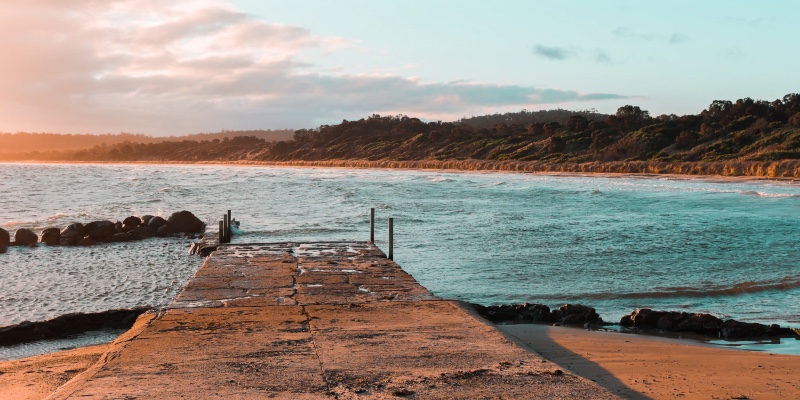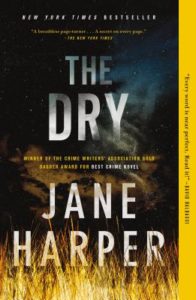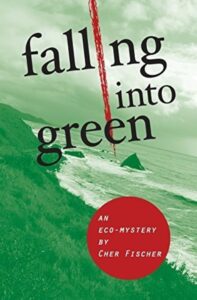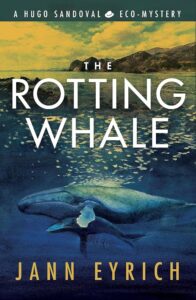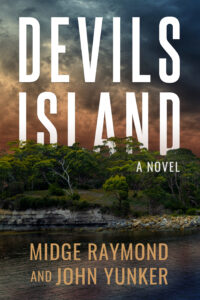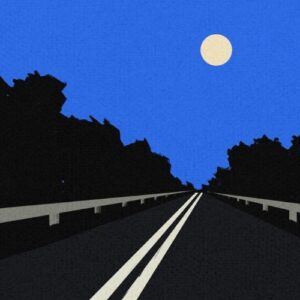When John Yunker and I wrote Devils Island, we set out to write a mystery set on a remote island off the coast of Tasmania — an island home to deadly snakes, nefarious poachers, endangered Tasmanian devils, and a naturalist concerned about their fate. So perhaps we shouldn’t have been surprised when we ended up writing an eco-mystery.
As not only co-authors of Devils Island but also co-founders, in 2011, of the environmental publisher Ashland Creek Press, we’re passionate about the roles that animals and the environment play in fiction. One of our first titles as a publisher was an eco-mystery, and now, after writing Devils Island and working on a second eco-mystery of our own, we’ve been thinking a lot about how a popular genre like suspense can go a long way toward opening hearts and minds to the issues facing our planet.
Fiction, especially mystery and suspense, must entertain above all else, but that doesn’t mean such themes as climate or animal protection can’t be woven into a story — these threads not only reflect the world we live in but add tension to the narrative.
And in today’s world, as important as offering a good story is offering hope. While there’s an abundance of nonfiction about climate change and mass extinction, sometimes we just want to escape into a good book and to believe all will be well in the end. Along the way, we might also meet characters who share our fears about this changing world, who remind us that we’re not alone. Environmental mysteries are uniquely poised do exactly that.
Here are a few eco-mysteries, from big publishers and small presses alike, that offer escape into a good story while raising awareness and hope at the same time.
The Dry by Jane Harper
Jane Harper’s troubled but incredibly likeable Federal Agent Aaron Falk returns to his hometown and to the scene of an old crime, amid the Australian outback’s worst drought in a century. Throughout this page-turning mystery, the tinder-dry setting and the climate crisis emerge as characters in their own right, ratcheting up the tension and playing an unsettling role as the novel propels readers toward its end. In addition to being a first-rate thriller, The Dry’s atmospheric chaos reminds us that we’re only as safe as our planet is.
Falling Into Green by Cher Fischer
Cher Fischer’s eco-mystery Falling Into Green (published by Ashland Creek Press) weaves together the loss of ecopsychologist Esmeralda Green’s childhood friend with the environmental damages done by a shady multinational corporation associated with both Ez’s friend as well as with the body recovered on the novel’s first page. While addressing the high costs of energy, global warming, and other environmental tolls, Fischer also has some good fun, especially with the novel’s love story as vegan, electric-car driving Ez falls in love with carnivorous, Hummer-driving television reporter Gabriel Hugo García.
Drive Your Plow Over the Bones of the Dead by Olga Tokarczuk
Nobel Prize–winning author Olga Tokarczuk’s Drive Your Plow Over the Bones of the Dead features an older protagonist, Janina, standing up for animals in a village of hunters (for many readers, Janina may bring to mind J.M. Coetzee’s Elizabeth Costello). Janina wants law enforcement to do something about poaching, but no one listens to “women of your age,” she is told. Soon, hunters are turning up dead. Amid the mystery of who is doing the murdering, Janina points out that the killing of animals for food is murder, too: “Crime has come to be regarded as normal, everyday activity. Everybody commits it.” Janina’s Olive Kitteridge–like persona is powerful and endearing, particularly for readers who love animals.
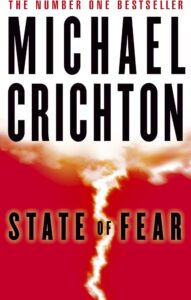
State of Fear by Michael Crichton
Few authors blend science and fiction like Michael Crichton — and State of Fear is no exception. Based on the author’s three years of studying climate science, this thriller brings together climate advocates, eco-terrorists, federal agents, lawyers, philanthropists, and many more in a page-turner that reveals the complexities of climate science and the effects of politics and media on our understanding of it — all while taking readers from Los Angeles to Antarctica to the American Southwest to the middle of the Pacific Ocean.
The Rotting Whale by Jann Eyrich
In the first book in Jann Eyrich’s new eco-mystery series, building inspector Hugo Sandoval travels from his beloved San Francisco to the northern California coast, a region that has thrived by extracting from nature — from fishing, logging, and cannabis farms that pollute and clog the local waterways to the dairy, sheep, and cattle ranch where much of the story takes place. Hugo’s journey begins when a whale is killed by a research vessel and he begins to delve into the secrets the locals have long held close.
***

